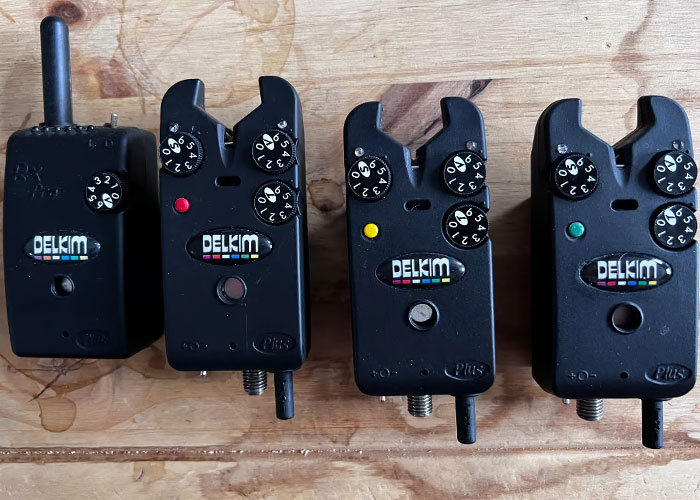In the angling world, innovation and tradition often go hand in hand. One such innovation that has stirred discussions among the angling community is using bite alarms. Using visual and auditory signals, these devices are designed to alert an angler when a fish takes the bait. While they’ve grown in popularity, the question arises: why do people use bite alarms? As we will explore, the answer depends on factors such as individual preferences, catch rate efficiency, and the ability to monitor multiple lines simultaneously.
Increasing Efficiency and Relaxation
Angling is a passion that requires patience, precision, and a fair share of leisurely waiting. With the advent of bite alarms, this waiting game has seen a transformation. Firstly, these devices offer the possibility of managing multiple rods simultaneously. Using bite alarms on each rod, anglers can increase the number of lines in the water, consequently enhancing their chances of catching.
However, it’s not merely about improving catch rates. The use of bite alarms provides an added layer of convenience and relaxation. Instead of spending the fishing session with their eyes glued to the rods or float, anglers can now sit back and wait for the bite alarm to signal a catch. This allows for a more relaxed fishing experience where anglers can enjoy their surroundings while waiting for the alarms to do their job.
Understanding and Managing Angler Preferences
Like any other hobby, fishing is influenced heavily by individual preferences and styles. While some anglers appreciate the benefits of bite alarms, others benefit from more traditional methods. For instance, some anglers enjoy watching the rod tip, anticipating the tugs signaling a successful catch. They might argue that fishing isn’t merely about catch rates or efficiency but the enjoyment derived from the process.
On the other hand, some embrace modern innovations like bite alarms, seeing them as tools to enhance their fishing experience. For these anglers, the convenience, efficiency, and freedom to fish with multiple rods outweigh the appeal of traditional methods.
Consideration for Other Anglers
Despite the growing popularity of bite alarms, their use requires a degree of consideration for other anglers sharing the same fishing space. The noise from bite alarms can potentially disturb others, particularly if multiple alarms go off simultaneously at high volumes. To ensure that everyone can enjoy their fishing experience, it’s crucial for those using bite alarms to keep their volumes to a minimum when others are around.
Moreover, using multiple rods, often linked to bite alarms, is prohibited at all venues. It is vital to check the rules of the fishing location beforehand. In some cases, using more than two rods requires a special license. Therefore, responsible use of bite alarms involves volume management and adherence to local rules and regulations.
Enhanced Alertness
Fishing requires a balance of active engagement and passive waiting, and during the waiting periods, distractions can arise. Whether sorting out bait, tying rigs, or simply reaching for a drink, there are moments when an angler’s attention may not be solely focused on their rods. Bite alarms come in handy during these instances. They provide a reliable alert system that ensures the angler is aware of a potential catch, even when their attention is elsewhere.
Furthermore, bite alarms can give an advantage in detecting drop-back indications when the angler isn’t watching the rod. A drop-back occurs when a fish picks up the bait and swims towards the rod, leading to a slack line that might go unnoticed. In this case, the bite alarm gives an alert, ensuring that even subtle bites are not missed.
Questioning the Need for Bite Alarms
Despite the evident advantages, some anglers question the need for bite alarms. They argue that traditional methods provide ample indications of bites. For example, observing the bobbin or listening to the bait runner clicking outline can be adequate for detecting a bite.
The necessity for bite alarms can also be contingent on specific circumstances. For instance, the time between bites, the time of day or night, and the overall fishing strategy could influence whether an alarm is beneficial. An electronic alarm might not be necessary for anglers who fish with one rod during short, intense periods, such as at dawn or dusk.
The Freedom to Watch the Waters
One of the less obvious advantages of bite alarms is the freedom they offer anglers to observe the waters. Instead of constantly watching the rod or float, anglers can scan the water for signs of fish. This ability to survey the water body might reveal potential hotspots for casting or suggest the movement patterns of fish, giving the angler a more informed basis for their next move.
Using a bite alarm can thus enhance an angler’s understanding of the aquatic environment, helping them to identify promising locations and improve their angling strategy.
The Two Sides of the Coin: Anglers’ Views on Bite Alarms
Like many other outdoor activities, fishing comes with an array of enthusiasts and purists, each holding a distinct view about using modern equipment like bite alarms. Let’s explore two contrasting perspectives on this topic, represented by anglers David and Chris.
David: The Modern Enthusiast
For David, an ardent enthusiast of contemporary angling tools, bite alarms are a game-changer. He loves how they’ve transformed his fishing experience and is quick to list their advantages.
Firstly, David appreciates the efficiency that bite alarms bring. He enjoys fishing with multiple rods simultaneously, increasing his chances of a catch. The alarms notify him instantly when a fish bites, and he does not miss any opportunity.
Secondly, David finds that bite alarms enhance his relaxation. Instead of constantly watching his rods, he can take time to enjoy his surroundings or engage in other tasks. This leisurely approach to fishing wouldn’t be possible without his trusty bite alarms.
Moreover, David values the freedom bite alarms give him to watch the waters. He finds joy in scanning the lake for signs of fish, planning his next move, and casting his bait strategically. This deeper engagement with the environment is something he attributes to the peace of mind provided by the bite alarms.
Chris: The Traditional Purist
On the other hand, Chris is an angler who cherishes traditional fishing methods, much like the renowned angler Chris Yates. For him, fishing is not just about the catch; it’s about the tranquil communion with nature and the art of angling.
For Chris, the constant buzzing of alarms shatters the serene atmosphere he seeks when fishing. He finds the noise distracting and believes it detracts from the calming sounds of the water and wildlife around him. He argues that a significant part of the fishing experience is the anticipation – watching the rod tip, waiting when the line tightens, and feeling the thrill of a bite.
Chris also feels that bite alarms lead to over-mechanizing a traditionally simplistic activity. To him, managing multiple rods at once detracts from the skill and focus that single-rod fishing requires. He feels most content when he’s immersed in the process of fishing, attentive to every twitch of his rod, rather than juggling multiple lines.
In conclusion, David and Chris represent two sides of a vibrant angling community, each finding joy in their unique approach to fishing. Whether it’s the convenience and efficiency of bite alarms or the tranquil simplicity of traditional methods, the beauty of fishing lies in its versatility and ability to cater to diverse preferences.
Conclusion
Bite alarms have revolutionized the angling experience for many, offering increased efficiency, relaxation, and the potential for a better understanding of the fishing environment. However, their use comes with considerations for other anglers and the rules of the fishing venue.
As with many aspects of fishing, the decision to use bite alarms is personal. Some anglers may find that they enhance their fishing experience, while others may prefer the traditional methods. Ultimately, the choice to use bite alarms should be guided by individual preference, the nature of the fishing session, and respect for fellow anglers.





